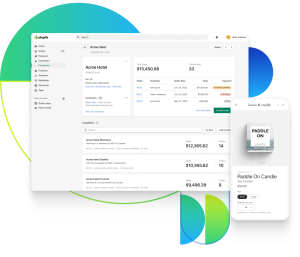
As an ecommerce business owner, you are likely well aware of the importance of having a visually appealing and user-friendly website. However, have you considered the impact that the speed of your website can have on your bottom line? In today’s fast-paced digital world, consumers expect websites to load quickly and efficiently. In fact, studies show that even a one-second delay in page load time can result in a significant drop in conversions and customer satisfaction. In this article, we will explore why the speed of your ecommerce website matters and how it can impact your business. From page load times to user experience, we will delve into the various factors at play and provide tips and strategies for optimizing your website’s speed and performance. So, buckle up and get ready to learn why speed truly does matter when it comes to ecommerce success.
Why Website Speed Matters for Ecommerce
Website speed is crucial for ecommerce businesses because it impacts user experience, search engine rankings, and ultimately conversion rates. When a website takes too long to load, users become frustrated and are more likely to abandon their shopping carts or leave the site altogether. Slow load times can also negatively impact search engine rankings, making it more difficult for potential customers to find your site organically.
In addition, website speed can impact conversion rates. Research shows that even a one-second delay in page load time can result in a 7% decrease in conversions. For ecommerce businesses, this can translate to a significant loss in revenue. Therefore, optimizing website speed should be a top priority for any ecommerce business owner.
The Impact of Slow Loading Times on User Experience
Slow loading times can have a significant impact on user experience. When a website takes too long to load, users become frustrated and are more likely to abandon the site. This can result in lost revenue and a negative impact on brand reputation. In fact, research shows that 79% of customers who are dissatisfied with website performance are less likely to buy from the same site again.
Furthermore, slow loading times can also impact customer perception of the site’s security. According to a recent study, 47% of users expect a website to load in 2 seconds or less. If a site takes longer than that to load, users may begin to question the site’s security and legitimacy.
How Website Speed Affects Search Engine Rankings
Website speed is also a crucial factor in search engine rankings. Google has stated that website speed is a ranking factor for both desktop and mobile searches. In fact, Google’s PageSpeed Insights tool uses website speed as a metric to determine website performance.
When a website is slow to load, search engines may interpret this as a negative user experience and penalize the site in search results. This can make it more difficult for potential customers to find your site organically, ultimately impacting your bottom line.
The Correlation Between Website Speed and Conversion Rates
Optimizing website speed can have a significant impact on conversion rates. By improving load times, ecommerce businesses can improve user experience, increase customer satisfaction, and ultimately drive more conversions.
Tools to Measure Website Speed
There are a variety of tools available to measure website speed. One of the most popular is Google’s PageSpeed Insights tool, which analyzes website speed and provides recommendations for improvement. Other tools include Pingdom, GTmetrix, and WebPageTest.
These tools can help ecommerce businesses identify areas for improvement and make the necessary changes to optimize website speed. By regularly monitoring website speed, businesses can ensure that their site is performing at its best and providing the best possible user experience.
Tips for Optimizing Website Speed for Ecommerce
There are a variety of strategies that ecommerce businesses can use to optimize website speed. Some of the most effective include:
1. Image optimization
Images are often the largest files on a website, so optimizing them can have a significant impact on website speed. Ecommerce businesses should compress images and use responsive design to ensure that images are optimized for all devices.
2. Minimize HTTP requests
Each element on a website requires an HTTP request, which can slow down load times. Ecommerce businesses should minimize HTTP requests by combining CSS and JavaScript files, reducing the number of images used, and using CSS sprites.
3. Use a content delivery network (CDN)
A CDN can help ecommerce businesses improve website speed by distributing content across multiple servers. This can help reduce load times and improve user experience.
4. Use caching
Caching can help improve website speed by storing frequently accessed data in a user’s browser or on a server. This can help reduce load times and improve user experience.
5. Choose a reliable hosting provider
A reliable hosting provider can help ensure that your website is always up and running, with minimal downtime. This can help improve website speed and provide a better user experience for customers.
The Importance of Mobile Optimization for Website Speed
Mobile optimization is crucial for website speed because more and more consumers are accessing websites on their mobile devices. In fact, mobile devices account for over half of all internet traffic.
Ecommerce businesses should ensure that their websites are optimized for mobile devices, with responsive design and mobile-friendly navigation. This can help improve website speed and provide a better user experience for customers.
Case Studies of Ecommerce Websites with Optimized Website Speed
There are many examples of ecommerce websites that have successfully optimized website speed. For example, Amazon found that for every 100ms of improvement in website speed, they saw a 1% increase in revenue. Walmart also found that for every 1 second of improvement in website speed, they saw a 2% increase in conversions.
Website speed is a crucial factor in ecommerce success. Slow loading times can negatively impact user experience, search engine rankings, and conversion rates. However, by implementing best practices for website speed optimization, ecommerce businesses can improve website speed and provide a better user experience for customers. From image optimization to mobile optimization, there are many strategies that ecommerce businesses can use to optimize website speed and drive more conversions. By prioritizing website speed, ecommerce businesses can stay ahead of the competition and provide the best possible experience for their customers.



